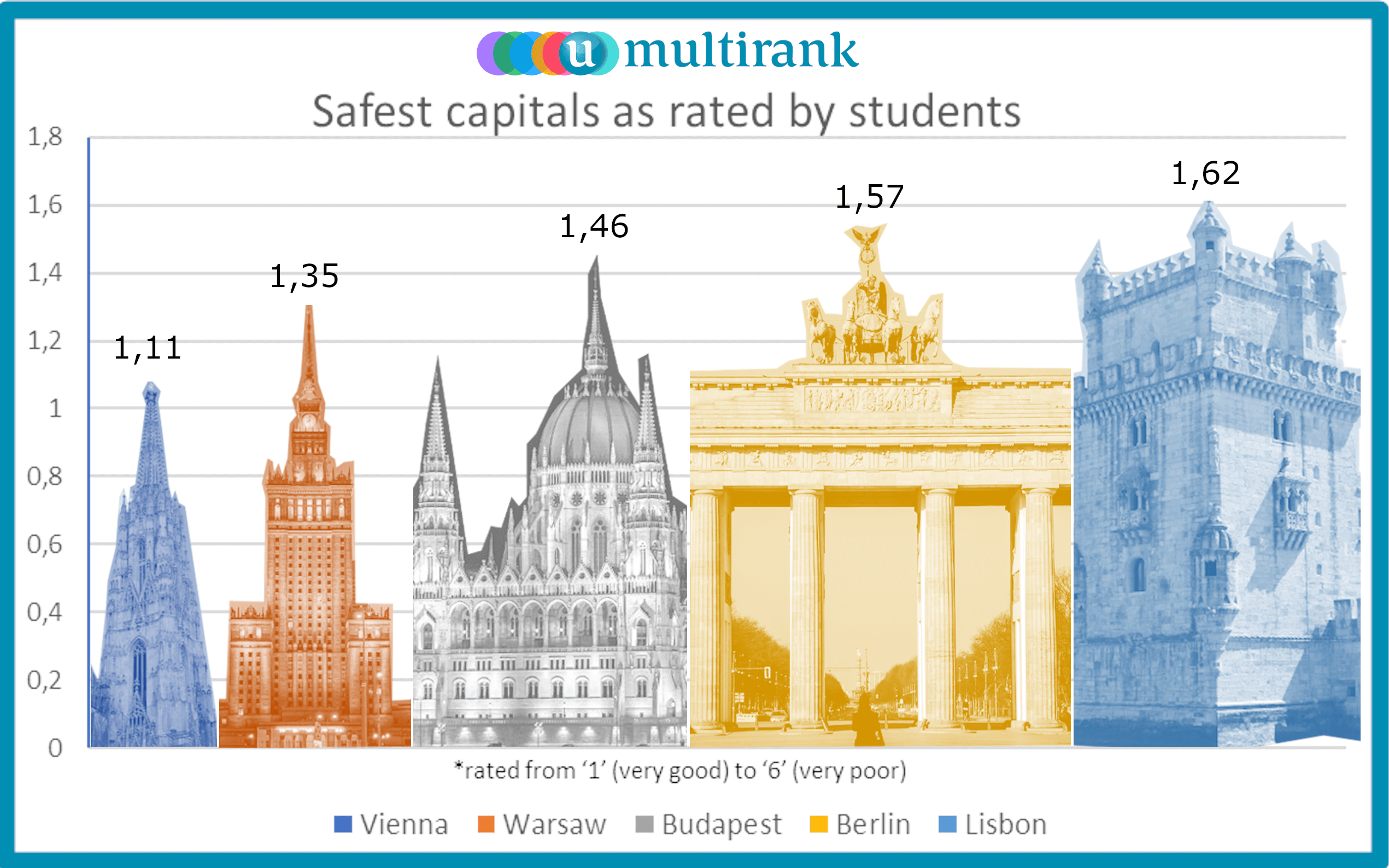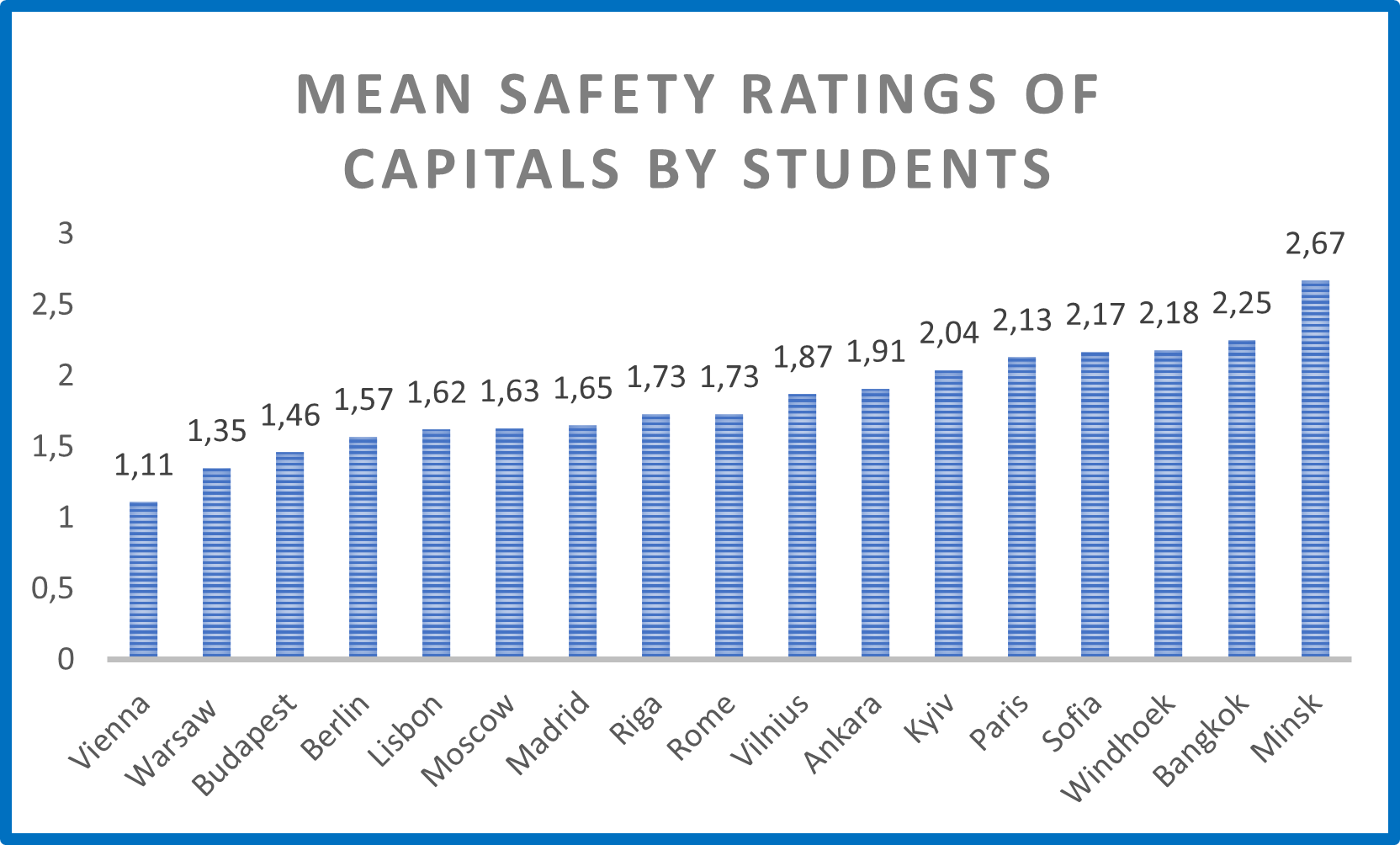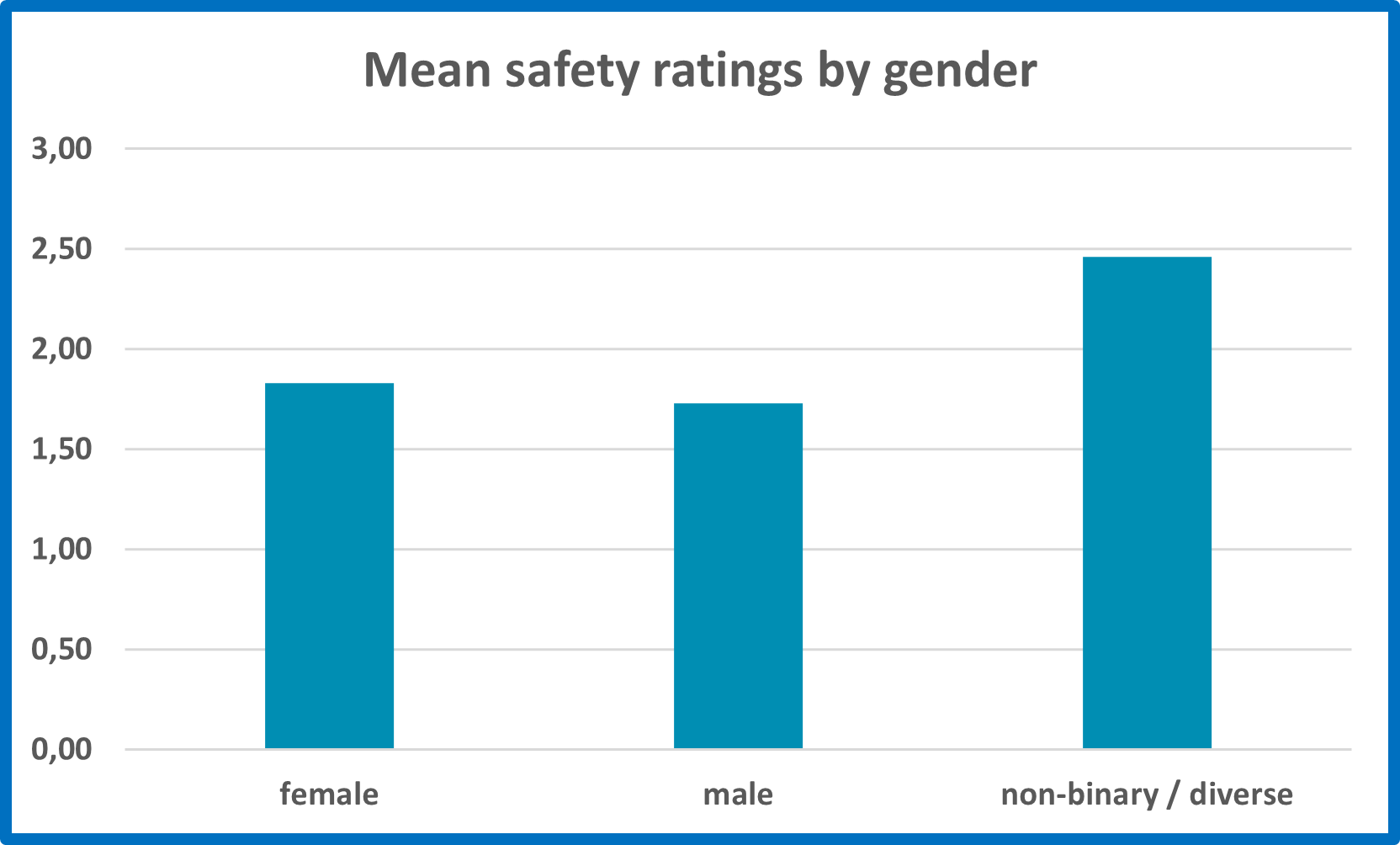Safest university cities – top 10 safety tips while studying abroad
Kathrin Müller, U-Multirank
Dec 15, 2021 13:10 (CET)

One important question you might have before moving to another city for studying is, is this a safe place to study? Especially for those students deciding to study abroad, your family members or friends might come up with this question before your trip. Of course, security is an important aspect of daily life, which is why in this blog post we want to share with you our top 10 safety tips while studying abroad. Additionally, we will present a list of the safest capitals to study in based on what students had to say about the safety in their own university cities.
10 safety tips for while studying abroad
- Common sense
Rely on your common sense and be attentive towards your surroundings. In case you feel uncomfortable, leave the situation - Watch out for pickpockets!
Pickpockets are especially interested in your valuables. So, keep any valuables close to your body and do not display large quantities of money in public. Also, zipped pockets ensure to have your valuables stored handy, but nevertheless secure. - Copies of important documents
Make sure to bring copies of important documents such as passports or insurance letters.
That way it is guaranteed that you have all the crucial documents even if they get lost or stolen. Also, when you go out, you can leave the original document at your home and only take the copy with you. - Buddy system
If you are exploring new areas, do it together with others. Also make sure there is someone – e.g. your flatmates - who knows where you are going. Making use of the buddy system (e.g. being accompanied by anyone personally or via phone) is especially recommended when you go home at night. - Guideline for emergency situations:
Know what to do in case of emergency situations. For example: what is the local number for calling the police or the rescue service? - Information in advance
Inform yourself in advance about local circumstances or problem areas: are there quarters of the city that should rather be avoided? Often it helps to get in contact with locals or former exchange students for this purpose, because they know better where (not) to go. - Crowded places
Special caution at crowded places (e.g. tourist attractions or overcrowded public transport) as they also tend be the favorite spots for pickpockets. - Basic language knowledge
While knowing the local language is always helpful, knowing certain important phrases is a must. Consequently, wherever you are, you should always know how to call for help. - Stay away from political / societal uprisings
It might feel adventurous to join demonstrations or similar events should you stay abroad during political and / or societal uprisings. Nevertheless, for your own safety, avoid such situations! - Knowing your own limits
Although studying abroad can feel like a big adventure, and you might want to try everything, know your own limits when it comes to alcohol, tests of courage etc.
What are the safest university cities? – student views
For the U-Multirank student surveys 2020 and 2021, students were asked to rate how they perceived the security in their university city. The answer scale ranged from 1 (very good) to 6 (very bad). 52,335 current students answered this question which allowed us to calculate safety ratings for 230 cities worldwide.
Students all around the world feel quite safe in their university city with an average security rating of 1.81. However, there are bigger differences between cities. The safety ratings for selected participating capital cities are presented in Figure 1.

Figure 1: the mean safety of capitals as rated by students
Other differences can be seen when looking at the safety ratings by gender, for example female students (1.83) felt slightly less secure than male (1.73) in their university city. In this year’s student survey, students for the first time also had the possibility to choose ‘non-binary / diverse’ as their gender. This student group however (with a total of 349 student replies) formed the group that felt the least secure – with an average rating of 2.46 – in their university city.

Figure 2: student safety ratings of cities by gender
How can U-Multirank help to find out if my favourite university city is a safe place to study?
Do you want to find out how safe your favorite study abroad destination is? On our U-Multirank city pages, for many places we include safety and security information (based on the Numbeo safety index scores).




